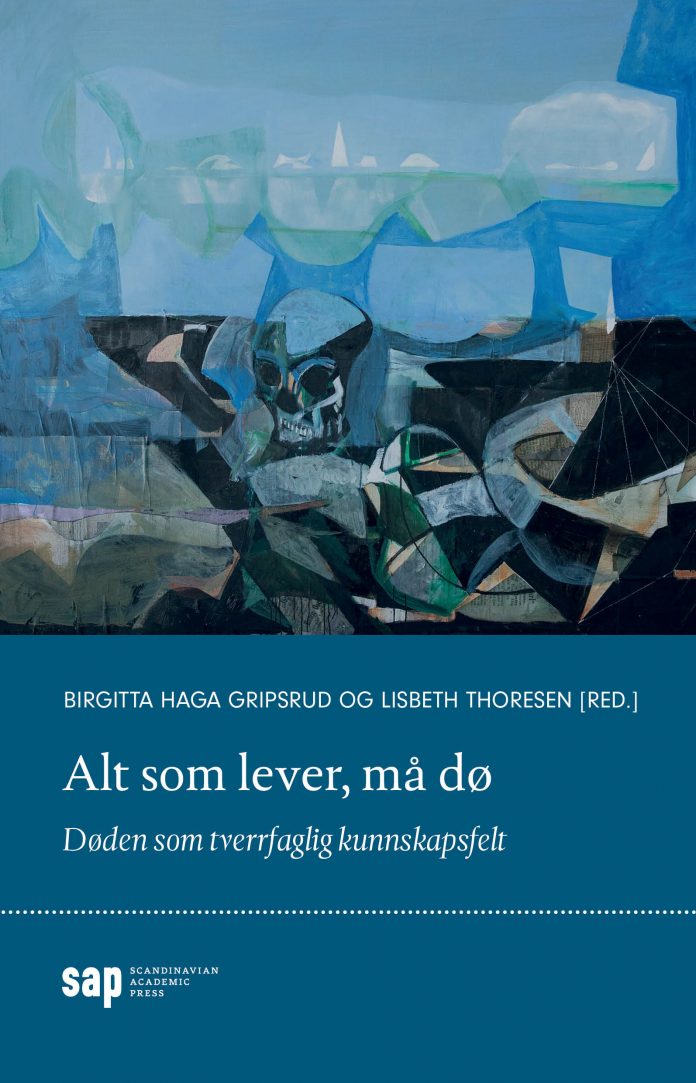(THIS ARTICLE IS MACHINE TRANSLATED by Google from Norwegian)
Talking about death is not easy, because you can't be death in the same sense as man er living. If you are dead, you no longer exist, and this disastrous perspective is of concern to some living, and to the comfort of others. We have many thoughts and feelings related to our own and others' deaths, whether we express them or not. The world has not managed to settle down with Epikur's statement: "So the worst of all evils does not concern us. For when we are, death is not; when death is, we are not. ”
The editors of this book have a background in nursing science, and have brought together writers from other disciplines to shed light on the topic from different angles. Nurses want to meet dying people and their relatives constantly in the job context, but it turns out that they talk little about this with colleagues. It is displaced in a way. Could this cause them to become less sensitive and responsive to the needs of the dying? Yes, maybe so, but there is something striking about nursing science's attention to nurses' own feelings. The nurse first. If the nurse is not well with himself, then the patient will not get well either.
Priests, humanists and imams
In the past, it was the hospital priest who took care of the spiritual needs of dying patients, today the landscape of life is more complex. Some pastors believe that they have a universal skill that can be adapted to all views of life, others see a need for hospital humanists and hospital imams. Currently, there are few alternatives to priests, and alternatives are in low demand, but where the alternatives exist, they are extensively used. Offers create needs.
However, working with the dying does not only mean heavy moments. We can also read about the palliative doctor who talks about what it's like to visit and win the patient's trust, and to be invited into the family's deepest emotional space. It "makes the blood flow over the years", gives him "a true joy" and "is wonderful". Refreshingly honest.
It is common to lament the conditions we die under today: stowed away and forgotten in nursing homes. In the past, one died naturally – at home among loved ones. This romanticization forgets that the old days of "home death" did not have access to the same medical treatment as today and could therefore be a disgusting and heavy affair in many cases.
However, working with the dying does not only mean heavy moments.
There was also a lot to do, and this was women's work. Probably because the body was considered unclean. Since women were unclean by nature (menstruation and childbirth), it was natural for them to wash their bodies. There were also women who watched over the dying and the dead. The fact that women to a different degree than men are the bearers of grief is something that has continued to our day, where we can see women with full veils and robes at funerals, while men wear suits.
High-voiced obituaries
In death we are all equal, it is said. However, it must be modified when we look at obituaries and obituaries. In Norway we have a long tradition of only writing nicely about the deceased. It's just panegyric. Everything negative is erased. However, not everyone is ready to get an obituary. The biggest chance is if you were a white well-educated man who has left you behind in business, politics or corporate life. In addition, if you have been "across the board," the case is ready. Of course, these astonished obituaries say something about what we believe is a full and desirable life.
A valuable life is associated with the freedom to make choices. When one is facing death, this freedom is diminished, since the scope of action is reduced. But you can see it differently. Within the study of disabled people, attempts have been made to remove the basic distinction between disabled and disabled bodies. The point is that we all to a greater or lesser extent use dentures or aids. These can be very specific body prostheses, but also external aids such as manuals and tools. The point is not what you can do without these dentures, but what you can do with them.
The language can also be seen as such a prosthesis. Relatives who know the dying well can interpret and activate the expressions of the dying by means of memories, notes, photographs and other things. Concentrating on opportunities rather than limitations can make a difference for all parties involved.
We'll all die anyway. But the way we die turns out to mean a lot on life's last upside. It's not that complicated.
People who show clear anxiety and death anxiety calm down as soon as someone holds them in their hand.






